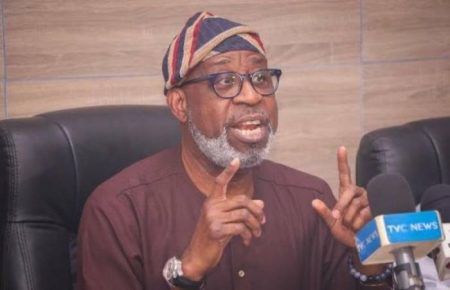
02 November 2015, Sweetcrude, Abuja – Arriving late in an activity can provide a leapfrogging opportunity for smart entities. Telephony for example, saw Africa joining the world in the era of mobile; circumventing numerous challenges associated with running/maintaining analog telephone systems on a large scale (Europe and America) and thereby leapfrogging into the mobile era. Africa and other third world countries reaped the benefits of century-old learning from legacy systems.
Mining is still the hope of Africa and Nigeria is no exception. Although it’s not new, solid minerals sector in Nigeria has received a renewed interest both from government and the private sector. This arose from the dual forces of falling oil price and President Buhari’s promise to revive a sector that holds good promises.
Having been neglected and poorly regulated for decades, the new initiatives around this sector must leapfrog, to learn from lessons of mining operations in other countries (notably, South Africa, Peru, Zimbabwe and Chile). When things go wrong in the mining sector, they go very wrong! Massive conflicts and violence are common outcomes. New efforts in Minerals and Mining needs to incorporate best practices in contemporary mining operations and lessons learnt from the Oil and Gas industry in Nigeria as well. Otherwise, Nigeria may spend the next 59 years (Oil and Gas in Nigeria) and the next 153 years (copper mining in Springbokfontein SA) repeating avoidable errors.
Regulation
Fiscal issues: Mining corporations around the world have come under heavy scrutiny by civil society groups (environmental impact of operations and community neglect).
These concerns push operators to embark on “social reward” programs that are sometimes perceived as dual taxation. Fiscal incentives around taxation, rents and royalties must, therefore, be sensitive to these growing, “social-demand expenditures” for mining investment to remain attractive. Given the all-too-common financial constraints that has hitherto limited indigenous participation in the extractive industry; Small Scale Mining Lease (one of five license types) should receive greater regulatory attention with enabling frameworks. In addition, government will need to use proper investment promotion vehicles to attract Foreign Direct Investment (FDI), foreign mining corporations and indigenous investors.
There are elements of the mining opportunity in Nigeria that makes it uniquely attractive to savvy investors. Beyond that discernment, however, is the need for political risk /regulatory assurances from government; to make this sector boom. Investors are keen on seeing greater clarity in an area that obviously holds huge profitability.
Core Governance: The State Mineral Resources and Environmental Management Committee, which according to the 2007 Mining Act, interphases with investors at the last mile and also advises the Ministry, must be manned by very competent persons. There is need for this body to have inputs from the private sector to ensure relevant and cutting edge contributions to minerals development.
Environmental arguments: Water pollution in Mpumalanga Province of South Africa, Acid Mine Drainage (AMD) in the Witwatersrand basin, Johannesburg; and the constant air and water pollution from mine dumps in Davidsonville, Johannesburg and Bafokeng are clear indications that the roles of Mines Environmental Compliance Department (In Nigeria’s Minerals and Mining Act No. 20 of 2007) must be strengthened to avoid massive environmental neglect and the unpleasant argument that follows.
Trans-boundary issues in Mining can be complex and do pose significant risk to profitable mining. Before Nigeria gets to that point (compare Oil and Gas industry where crude oil theft is considered well entrenched and cabal-controlled).
Installing control strategies in the wake of mining sector revival, will circumvent organized mineral theft, smuggling and cross border illicit trade. Regional protocols on Mining such as the SADC protocol on Mining (for Southern Africa) can be engineered in West Africa to create common standards and harmonize trans-border issues.
Modern practice
Mine communication infrastructure has become advanced. While they have been adopted in many nations; other are still struggling with legacy systems. In Nigeria’s new mining environment, best practices in the use of IT in mining should be enforced from the onset. Leapfrogging will imply the provision of regulatory push for the proper use of latest technologies in mining such as, IP/MPLS (Internet Protocol/Multi-Protocol Label Switching) and Optical Transport Network (OTN), to enhance profitability, safety and environmental concerns. These technologies are normally applied to achieve better operation monitoring, scheduling, ventilation control, investigation after collapse manage air handling and dewatering. Nigeria’s Minerals and Mining Act of 2007, makes no direct recommendation for the possible adoption of mining technologies that are rampant around the world.
“Learning Route Programme” (Learning from the impact of the extractive industry in Latin America and Southern Africa) is a program that southern Africa used to achieve a similar objective. Phase II (South Africa – Zimbabwe) was coordinated by Procasur and funded by the Ford Foundation, held between 19-31 March 2012 in South Africa and Zimbabwe. Nigeria should therefore consider the use of a unique vehicle/program that ensures it does not repeat any of the known errors committed in major mining hubs and thus, ensure that the leapfrog strategy is successful.
*Excerpts from the report “New Mineral and Mining Window in Nigeria” from Africa’s Barrel Equations.
*Chijioke Mama is a Senior Oil and Gas Analyst and the Founder of Africa’s Barrel Equations. [email protected] +2347061013333



